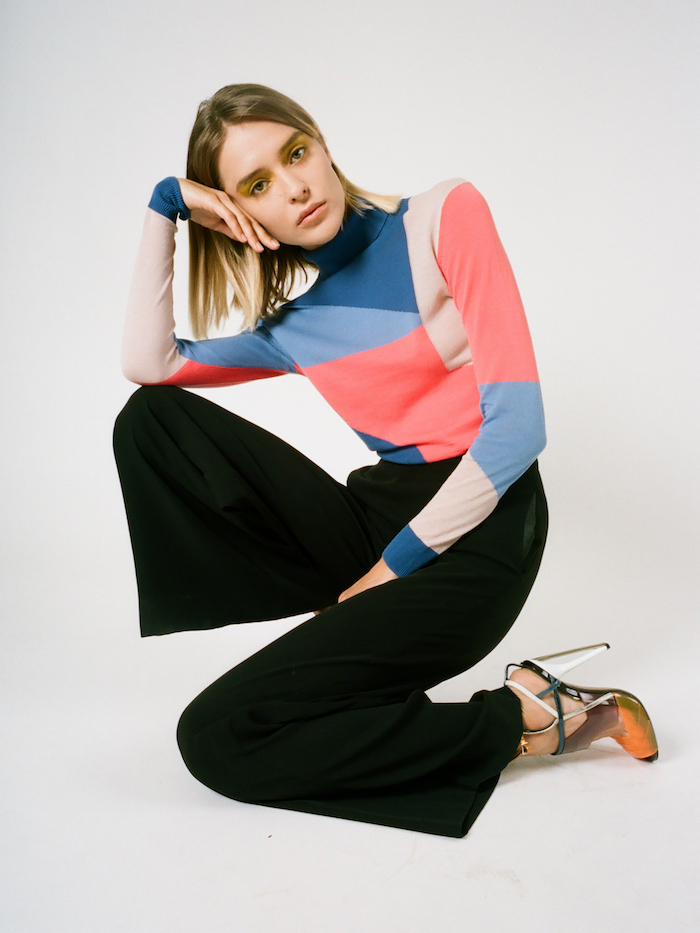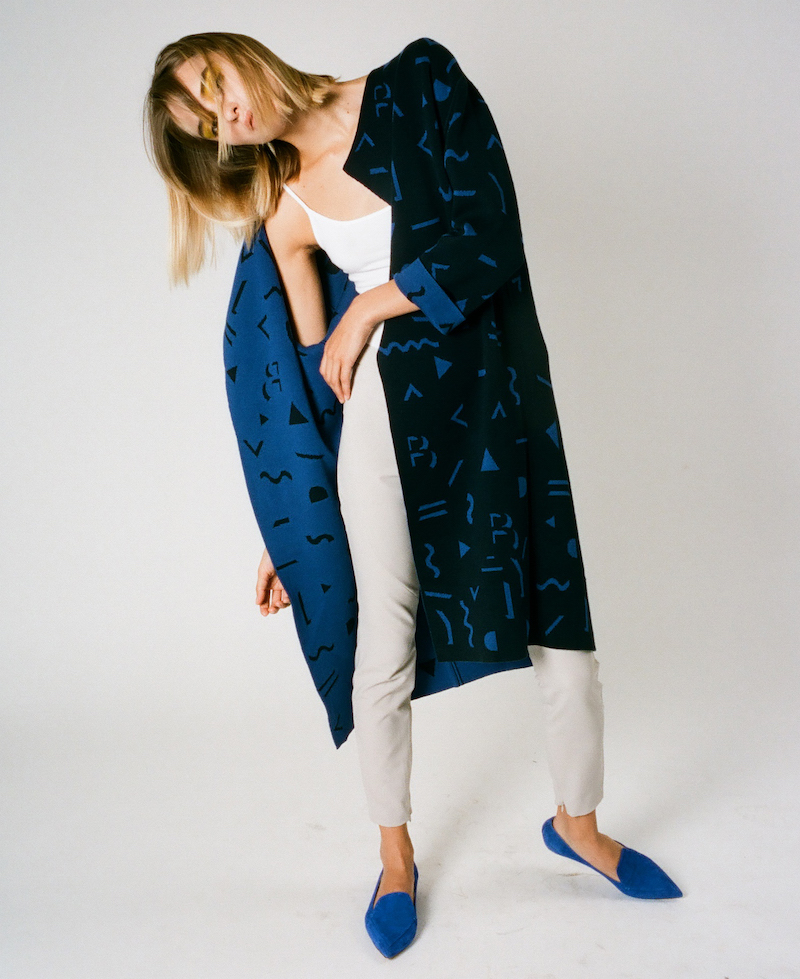Kate Morris: vegan knitwear
By BEL JACOBS
Five years ago, the definition of ethical design was a tricky one. Was a label ethical if its workers were paid fairly but its dyes polluted nearby rivers? Was a shoe brand ethical if it’s leather was chrome-free but had been ripped off the back of an animal?
Increasingly, designers are starting to realise that ethics is a 360 affair: one that takes into account people, planet and animals. And there’s few designers more proficient in this approach than Kate Morris, winner of last year’s prestigious Redress (previously EcoChic) Design Award.
Now, the Masters graduate from Nottingham Trent is one of four designers, all previous Redress competition winners, helping launch Redress’ latest venture, the R Collective, a clothing label that aims to provide a commercial and creative platform for the best new names in sustainable design.
Joining Morris are Kévin Germanier, Central St Martins graduate and 2014/5 Redress winner; Hong Kong Chinese Victor Chu and Israeli Lia Kassif - each with their own unique take on the challenges and possibilities of sustainable design.
Morris’ modus operandi is vegan knitwear, turning end-of-line yarns into bold, playful designs inspired by Pop Art and 1960s psychedelia. Bright, cutting edge but infinitely wearable: the pretty cardigans and cracking t-shirts arguably raise the bar for all sustainable fashion.
Then there's the process. A focus on cutting out waste and improving efficiency has led to garments made with minimal seaming; thinking about full life cycles mean each is created using one fibre type per piece, for maximum recyclability; care labels incorporated into jacquard patterns make a design feature out of promoting low impact use.
Morris is understandably excited about her new project. “The R Collective gives us a huge amount of exposure,” she enthuses. “It’s a launchpad for emerging designers straight out of the studio and into the industry. What’s more, the label proves that upcycling is scaleable and it’s commercial.”
Her work with Redress is only part of her plans for the future. Her dream? "To run a successful vegan knitewear label ..." It's a goal that’s closer than ever; last year, Kate won PETA’s 2017 Best Wool-Free Award with her own label CROP, plant-based cruelty-free knitwear that smashes through all expectations of what a vegan jumper might actually look like.
Zeitgeist is on her side. Earlier this year, Stella McCartney and PETA teamed up to ask students to create a ‘vegan wool’. “There’s a huge movement away from leather,” muses Kate, on the too-long-ignored concerns with animal welfare within the fashion industry.
“I was wondering if the same thing might happen to wool. As a knitwear designer, it’s quite weird to boycott wool but there are so many plant fibre alternatives out there now, including Tencel and bamboo.” PETA and McCartney, take note.
Other plans? To use fashion to “change people’s attitudes towards fast fashion, persuading people to buy less, choose well, recycle and re-use.”
“I’m only happy with a design if I know I’ve done everything I can to ensure it has minimal impact on the world,” says Morris. “It’s very rewarding when you can prove to people you don’t have to compromise on design to create a product that will work long term.”
Defining ethical just got a lot easier.



